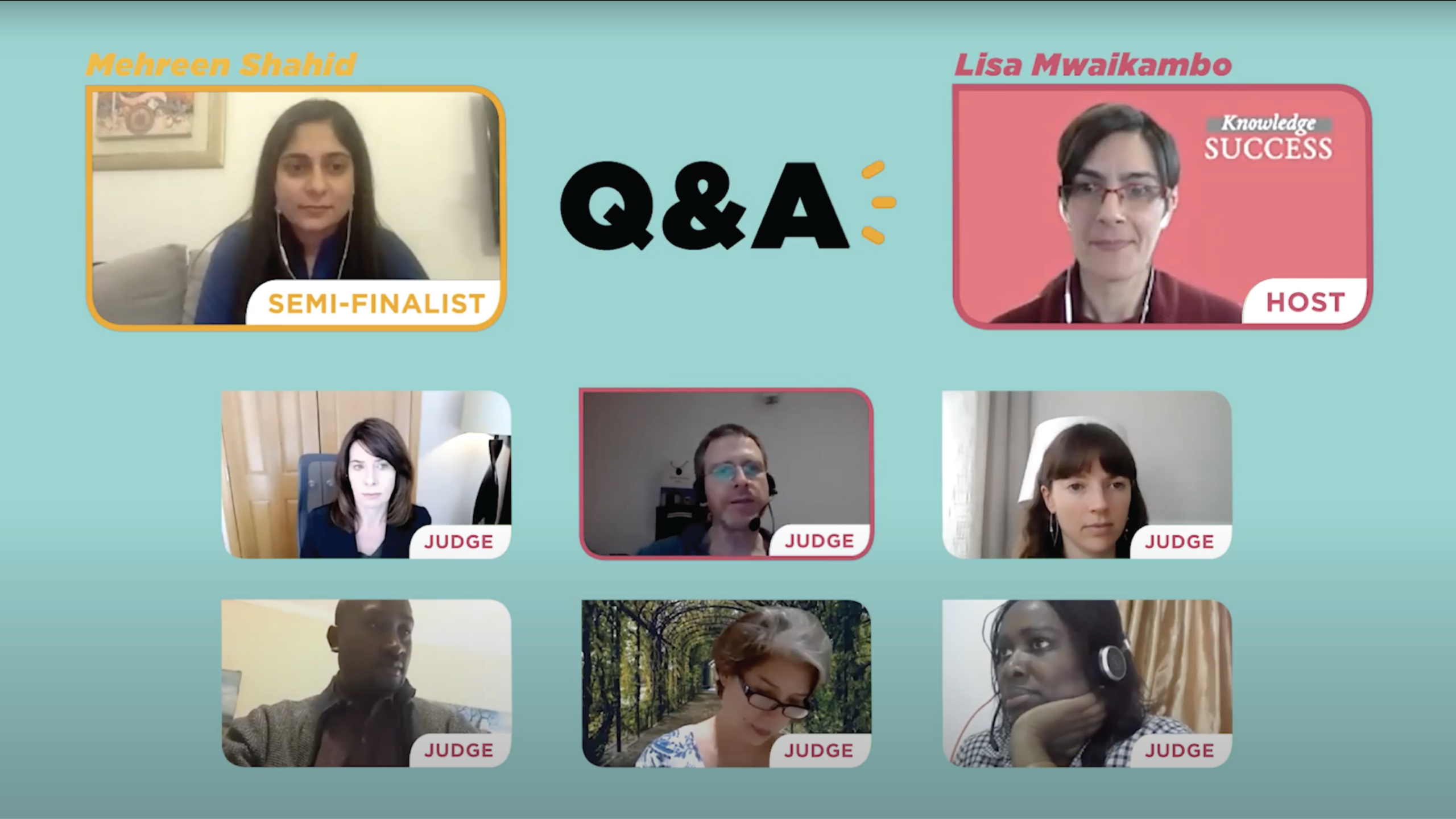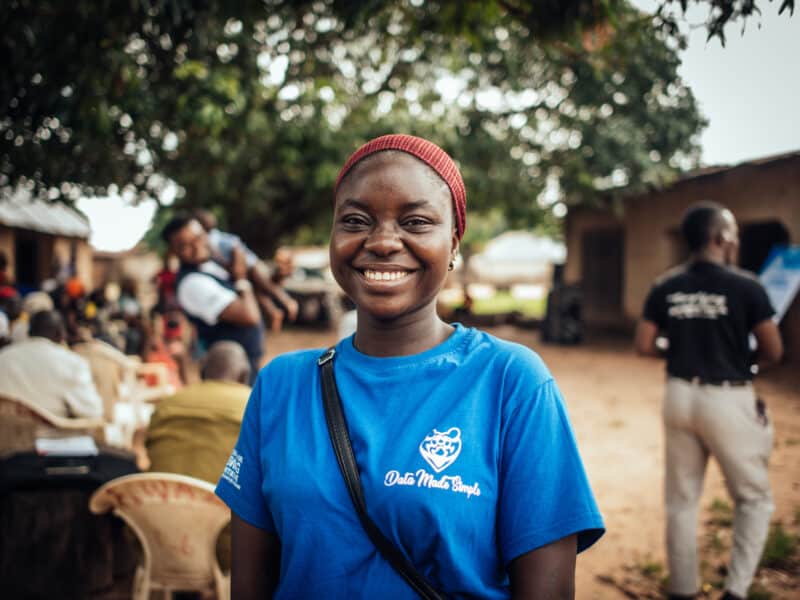With the excitement and suspense of the television show “Shark Tank,” Johns Hopkins Center for Communication Programs’ Knowledge SUCCESS project gave away nearly $200,000 last week to winners of a global competition to find and fund creative knowledge management ideas for family planning.
The 10 semifinalists of “The Pitch,” chosen from more than 80 applicants, made their pitches to a set of six judges from NGOS, donors and academia, who asked probing questions to determine which four projects should receive up to $50,000 each in seed funding.
“I want to say this was a very stiff competition,” CCP’s Tara Sullivan, one of the judges, said before announcing the winners. “These semifinalists were all very strong with innovative knowledge management solutions for pressing family planning and reproductive health problems.”
With the understanding that community can be as important in our work lives as in our personal lives, Jhpiego India pitched an idea for creating an online family planning and reproductive health community across India through “FPKonet.” FPKonet would be a centralized knowledge management system where information can be collected, organized and housed electronically.
Most importantly, Jhipego’s Priti Chaudhary told the judges, it would be available to everyone in the country. It would also provide a unique space for members to share experiences, coordinate activities, and discuss important developments in the sector. Networking would be a key feature and people could join smaller, thematic groups of interest to them, she said.
“Even today when we seem to be so well-connected by technology, we are still unaware of what the other organizations and professionals are doing,” Chaudary said. “If you know something very important, let’s share it with each other … FPKonet is going to do exactly that in India.”
As part of “The Pitch,” Knowledge SUCCESS – which is funded by USAID – created two 45-minute “Shark Tank”-like episodes, one for semifinalists from Africa and the other for those from Asia. The programs, complete with snazzy graphics and suspenseful music, premiered last week with online watch parties. Each winner designed a plan for how to spend their grants within the next five months – and to make sure their programs are sustainable beyond that.
Sullivan, who also leads the Knowledge SUCCESS project, announced the winners and the judges’ reasoning at the end of each broadcast. From Asia, the winners were Jhpiego India and Safe Delivery Safe Mother in Pakistan. From Africa, White Ribbon Alliance for Safe Motherhood Malawi, and Stand with a Girl Initiative in Nigeria were chosen.
Margaret Bolaji, founder of the Stand with a Girl Initiative, was thrilled to be selected to receive a grant for her organization’s digital innovation, Data Made Simple. The innovation aims to train young people to analyze adolescent and youth sexual and reproductive health data and visually depict it in creative ways such as storybooks and infographics. The goal is to enable them to be able to then share their visualizations directly with decision makers.
“As a young advocate for sexual and reproductive health, I was so sure my stories won decision-makers’ hearts,” Bolaji said. “As I matured, I knew I needed to do more by using data and evidence. But every data-related meeting and capacity building workshop I attended was always boring and overly complicated.”
She imagines a platform that shows data in “simple, friendly, catchy and responsive formats,” is shared in indigenous languages and can be used as advocacy tools to “engage everyone.”





